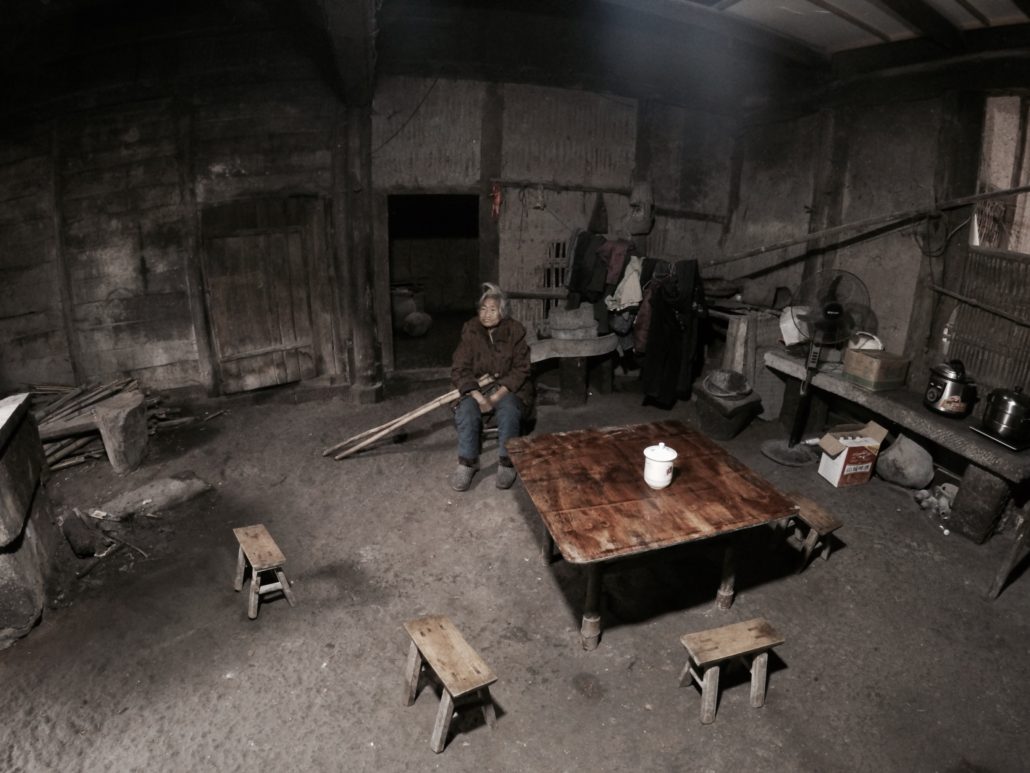Burnt, but not broken
Tiantaishan Village, Guizhou Province
Ran Fangqing, 46, lives in a small village deep in the mountains of Guizhou province, China. A fire during his childhood left him partially blind in one eye and half of his face covered in a complex network of scar tissue.
The fire, however, was just the beginning of a string of unfortunate events. Fangqing eventually got married, only to have his wife depart soon after the birth of his only son, leaving him to juggle the roles of both a father and a mother.
Beyond parenting duties, as the only abled-bodied person and sole bread-winner of the household, Fangqing also had to travel daily along treacherous mountain trails to fetch water, cook, wash, provide and care for his aging mother and infant son.
Life only got more difficult when his elderly mother became senile. She started to panic whenever Fangqing left the house, and refused to eat whenever he was not around.
As her conditions deteriorated, Fangqing was unable to even leave the house to fetch water. With few other alternative water sources, the family had to sometimes resort to drinking from muddy puddles and ditches.
When we visited, his mother was already incoherent in her speech. The elderly woman had lost all her teeth and her movements appeared to be laboured. She used a pair of bamboo sticks as makeshift crutches to move around the small house. The only coherent words that she uttered when we were there were strange and somewhat morbid – “I do not want to be buried in these clothes”, she said.
For years, Fangqing struggled to fulfill the family’s most basic needs – food and water. A heavy burden was lifted off his shoulders when Lien AID’s Village Water Management programme brought clean water from a mountain spring directly to his home. On the day we visited, he was just about to cook lunch. He washed and prepared the food while keeping a close eye on his mother.

Fangqing preparing a meal in the kitchen as his mother wanders about the house using her makeshift crutches.
Having clean water piped directly to his house has not only made life more convenient, but it has also improved the quality of life for Fangqing and his small family. Soon after he gained affordable and convenient access to clean piped water, Fangqing started raising chickens and fish to earn more income. He now maintains a small chicken coop as well as several fishponds in the vicinity of his home.
“In the past, we did not even have enough water to drink. Now, life has gotten better. I have enough water to rear chickens and fish.” Almost all of the extra income that Fangqing earns now goes towards supporting his only son, who will soon graduate from high school in a nearby town.

Fangqing’s home – the chicken coop is on the right while his fish pond is visible in the background.
Although life is still far from easy, but Fangqing remains hopeful about the future. “My biggest wish is that my son can continue his studies in university.” He told us. “I want him to have a promising future, and lead a better life than I ever did.”
This project in Tiantaishan village, Guizhou province, implemented under the Village Water Management programme in China, was co-funded by CITIC Envirotech.














